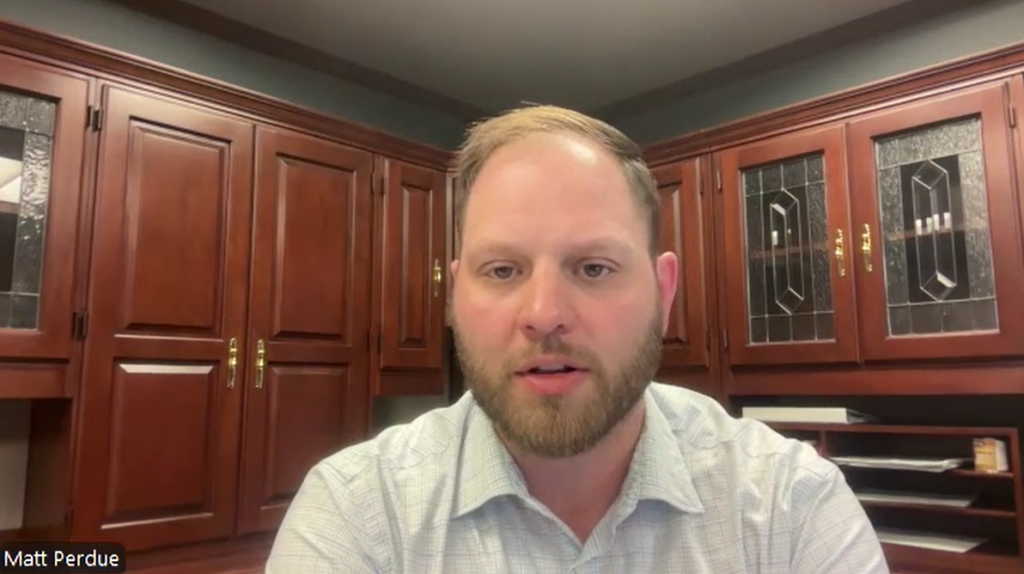Hemp ban in federal funding bill could end Minnesota’s THC edibles and drinks industry
ST. PAUL, Minn. (Minnesota Reformer) — A provision in the federal government’s shutdown-ending spending package would be a massive setback to Minnesota’s hemp-derived THC industry if it were to pass.
Although the federal government isn’t likely to start kicking down doors seizing low-dose THC edibles and drinks, a new federal law against hemp-derived THC products would create new logistical hurdles for the burgeoning industry and could cripple what has become a $140 million retail segment that’s even found its way inside Target liquor stores.
The provision was championed by Sen. Mitch McConnell, who sparred with Sen. Rand Paul — his Kentucky GOP colleague — over the section that reverses the inadvertent legalization of hemp-derived THC in the 2018 Farm Bill.
In an effort to encourage more industrial hemp for commercial use, the 2018 Farm Bill took hemp off of the controlled-substance list and defined hemp to be any cannabis plant or product with 0.3% or less of tetrahydrocannabinol, or THC, which is the psychoactive drug from the plant.
Turns out, that’s enough to make products to get people high.
Along with a 2022 law from the Minnesota Legislature, the 2018 bill created a legal gray area for intoxicating hemp-derived THC products and paved the way for Minnesota’s THC beverage and edibles industry.
McConnell led the 2018 hemp effort and now wants to close the “loophole” that’s allowed for a hemp-derived THC industry to flourish as part of his agriculture policy legacy before retiring next year, Politico reported. The new prohibition introduces a cap of 0.4mg of THC per container, effectively banning intoxicating THC drinks and edibles, which, even at the lowest doses, have at least 2mg of THC.
A coalition of 39 attorneys general, including Minnesota Attorney General Keith Ellison, wrote a letter to key members of Congress in which they urged a rollback of the 2018 law: “Clear direction from Congress is needed to shut down this industry before it metastasizes further into an even greater threat to public safety than it already is.”
The industry currently has little federal regulation, leading to states adopting a patchwork of laws on hemp-derived products. In 2022, Minnesota passed a bill permitting the manufacture, distribution and sale of 5mg drinks and edibles to adults over 21, making it the “leader in launching the THC beverage revolution,” said Jason Tarasek, a cannabis lawyer at Vicente LLP. Among other safety regulations, the products can’t be marketed to children, and Minnesota retailers must obtain a license to sell it.
Paul objected to McConnell’s outright hemp ban, calling it “the most thoughtless, ignorant proposal to an industry that I’ve seen in a long, long time.” Most senators sided with McConnell, however — on Monday, the U.S. Senate voted 76-24 to set aside Paul’s amendment to reverse the provision, passing the hemp ban provision, along with the rest of the government funding bill, to the House to vote on as soon as Wednesday.
The provision, if it passes, will go into effect in a year, giving suppliers a chance to sell off their product.
Hemp-derived THC products are sold in liquor stores, breweries and other retail shops, making them a popular choice for consumers who don’t want to buy on the black market or venture into dispensaries now selling recreational weed.
“People who would never rip a bong are more comfortable with the low dosage,” Tarasek said.
Steven Brown is the CEO of Nothing But Hemp, the largest low-dose THC hemp supplier in the state, according to the company’s website. Brown said that his customer base for his physical retail stores, who are mainly 55 years or older, “don’t want to step into a dispensary.”
“They want to walk in and have a normal retail experience, like going to a liquor store or going into a hemp shop,” Brown said.
The federal hemp ban, which reverts hemp to the same federal status as cannabis, would effectively shut down the industry if it passes and holds up over time. Even if the federal government largely left states alone when it comes to regulating hemp, as it does with cannabis currently, the ban would create problems that would make the hemp industry virtually unviable, business owners said.
The Minnesota low-dose hemp business would become more like its cousin the cannabis industry, which is legal in two dozen states but remains federally illegal, creating a raft of business complications.
For one, liquor stores and breweries that sell THC products would have to pay significantly higher taxes, thanks to a section in the federal tax code that forbids businesses from selling illegal substances and also getting tax deductions on their business expenses. They’d also be unable to work with credit card companies or many banks, limitations which have forced cannabis dispensaries to largely use cash.
“There will be a number of breweries that will close their doors,” said Bob Galligan of the Minnesota Craft Brewers Guild.
Also, since hemp-derived THC comes from immature cannabis plants with more non-THC biomass, it’s less efficient to produce compared to cannabis. Federal legalization made hemp less of a headache to deal with compared to higher-potency weed, Galligan said, but a federal ban on hemp would reverse that calculation.
“The THC category we started two and a half years ago, it’s grown to be approaching 15% of our overall business,” said Jon Halper, owner of Top Ten Liquors, which Halper said is one of the top two hemp-derived THC retailers in Minnesota. Halper attributes Top Ten’s sales growth this year to those THC sales.
Halper said he would have to pull out of selling THC drinks and edibles if the ban goes through, and expects virtually all liquor stores to do the same.
“Most of the brands are going to go out of business because they’re not going to have places to sell,” Halper said. “The industry will just crumble overnight.”
Five alcohol trade organizations sent a letter echoing Ellison and the other 38 attorneys general, though a slew of alcohol wholesalers followed that letter with their own denouncing a prohibition, calling instead for federal regulation. For the most part, alcohol retailers and wholesalers support the hemp industry, but alcohol producers are more split, said Halper.
Ellison seemed unaware of the possibly industry-ending impact of federal prohibition.
“Even before Minnesota legalized cannabis, our state legalized the sale of certain edibles containing THC derived from hemp – as long as those edibles follow important consumer protection and quality-control standards,” Ellison said in a Substack post. “I support this law, and I am not seeking to restrict the sale of products that follow the law in any way.”
But a federal prohibition on hemp would indeed severely restrict the sale of hemp products that are legal in Minnesota, industry experts said.
They aren’t all doom-and-gloom yet, however, holding out for the possibility of a potent political backlash.
The provision “may incentivize reform because there’s a huge nationwide industry that this is going to kill,” Tarasek said. “When there’s that much money and that much consumer interest in these products, I just don’t think they’re going to go quietly.”
Brown added: “We’re still in the fight.”







